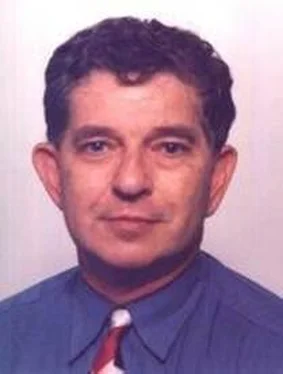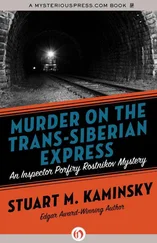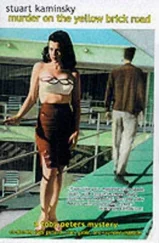He sat in the audience that night, a glass of schnapps in his hand. Elbow to elbow with the riffraff, all of them vying to be decadent. The life of the genteel Prussian had vanished, replaced by the ennui of the jaded. No one pretended to innocence in the Berlin of Thirty-two. What counted most was scandal. It masked the pain and despair.
He suffered through buxom women in skimpy costumes and the men pretending to be. He turned away from the animal parade. But when the orchestra sounded a drum roll, he twisted back toward the stage. And when Ilse appeared in the wavering beam of the spotlight, he brightened like a man glimpsing salvation.
In her first number she flounced across stage as a mountain girl, long braids pinned to her head. She wore a leather vest laced tight across her breasts, but not much else. It wasn’t until the shepherd boy unlaced it and forced her to ride the goat that Hesse looked away.
Next she marched onstage in an Imperial Regimental jacket, a rifle slung over her chest. She sang and crawled and shot and saluted her superior officer, who relieved her of her jacket and threw it into the wings. The randy shouts of the audience drowned out the last verse of her song. Through it all, the professor politely sipped his schnapps, as if Ilse were reciting poetry in a salon.
In the finale, she sang a sad ballad, wearing black sequins, fishnet stockings, and stiletto heels. A stray lock of hair fell across her face, throwing her profile in shadow. As her final note hung in the smoky air, the professor rose, put on his hat, and walked out. Skirting the bank of snow on the street, he cut through a narrow alley and knocked at the stage door.
The janitor found his body the next morning, half-hidden behind the stage in a corner. A pool of blood, now congealed, had seeped across the floor. The police found entry wounds in his chest and bullet casings that had come from a Luger.
ILSE SLOUCHED ATthe manager’s desk wearing a silk robe with oriental pretensions. The smoke from her cigarette floated above her head like a halo.
“When did you meet him?” The burly detective asked. His weary eyes said there was nothing more that could shock him.
“Several months ago. At a cafe on the Kurfürstendamm.” She smiled prettily. “We were both having tea.”
“He was alone?”
“Not then. But he returned the next day. Alone.”
The detective took off his coat and slipped it over a chair. He knew her type. Arrogant. Smug. Confident in her charm. “What happened when he came into your dressing room?”
Crossing one leg over the other, she dangled her foot in front of him. “He paid me a visit.”
“And what was the nature of this visit, Fraulein?”
“Must I be so indiscreet, Herr Inspektor?”
The detective shifted. The office wasn’t much bigger than a closet. He felt too big for the room. “You knew, of course, that he was married?”
“Aren’t they all?”
“What did he give you in return for your-favors?”
“What I expect from all my lovers. Kindness. Passion. A gentle touch.”
“And perhaps a few thousand marks, conveniently wrapped in a white linen handkerchief?”
She fluffed her hair. A whiff of cheap perfume drifted his way. “You presume, mein lieber .”
“When did he leave?”
“When we were finished.”
“And you made sure your friends were waiting for him, yes? Ready to roll him for his cash. What was your cut, Fraulein?”
“Inspektor. You are unkind.”
“But he put up a fight, didn’t he? Your friends didn’t count on that. He struggled, and things spun out of control.”
She drew herself up and tossed her hair. Even in the dim light of the office it gleamed. “I do not know what happened when he left my room. I had nothing to do with his death.”
FRAU HESSE POUREDtea from a Chinese teapot on a cloisonné tray. A small, birdlike woman with brown hair swept back in a bun, she sat primly on a flowered sofa, flanked by two men who she said were colleagues of her husband.
The detective sat on a silk-covered chair, his bulk spilling over the seat. He would have preferred to question her alone, but she was the wife of an important man. Fumbling his teacup, he was loath to ask the key question, and was taken aback when she preempted him.
“I knew Friedrich was unfaithful,” she said, her face bland and composed. “I’ve known for years. But you must understand. He was an excellent provider, and in these times, when inflation bleeds the value out of everything, I was grateful.”
Hoping his face didn’t reveal his surprise, he asked about Hesse’s work.
“He was a professor at the Chemical Institute. He was experimenting with radioactive elements.”
He frowned. “Radioactive elements?”
“Uranium.”
His frown deepened. “It is what-this uranium?”
Frau Hesse and the men exchanged glances. “He studied neutrons, protons, and electrons.” Frau Hesse said. “Subatomic particles.”
He shrugged. He was a police officer. Not an educated man.
Patches of red flared on her cheeks. “They are tiny particles. The elements of all matter. Together they form atoms. My husband theorized that under bombardment by neutrons, an atom of uranium would split in half. Much of his time was spent stripping protons from neutrons in an attempt to verify his hypothesis.”
“And did he?”
Again the wife and the men exchanged glances. “He was close,” the wife said. She bowed her head.
The detective made another note. “You seem very knowledgeable about his work.”
“We met at the University years ago. I am a scientist as well.” A tiny shrug fanned her shoulders. “But there was only room for one in the family. I was content to be his wife and the mother of his children. He is-was-a brilliant man.”
He set his teacup down.
Clear blue eyes gazed at him. “Indeed, he was a man. With a man’s flaws. Yet, he always came home to me. I loved him beyond description.” She looked away, then, and her jaw tightened, as if she was struggling to control her grief.
One of the men laid his arm around her delicate shoulders. “If that is all, Inspektor…”
“Of course.” The detective took the names of the colleagues and rose from his chair. “Auf Weidersehen,” he said with a slight bow.
As he stepped outside, he noted the mezuzah on the door frame.
TWO DAYS LATERthe Inspector stamped his feet, shaking the snow off his boots. The manager of Der Flammen led him into the office. A little man with a sparse mustache, the sour smell of fear rose from his skin.
“She’s gone,” he moaned, wringing his hands. “She was due here an hour ago. I sent a boy around to her apartment near the Nollendorfplatz, but she was not there, and all of her things are gone. The show begins in thirty minutes. What shall I do?”
A bevy of women, their cheeks rouged, eyelids darkened with kohl, filed past the open door. “It would seem you have replacements,” the detective said.
“Nein.” The manager threw his hands in the air. “You do not understand. They demand her. If they do not see her, they will hold me responsible. They are not patient men.”
“What men are these, Herr manager?”
“You know of whom I speak. They come in their brown shirts and boots. Almost every night, now.”
“Were they here the night Hesse was killed?”
“I do not know.”
The detective scratched his cheek. “Herr manager, I hear rumors about Der Flammen . Many rumors. I am sure you do not want trouble with your license.”
“You would not. You could not.”
The manager hesitated, then took a step back, seeming to shrivel against the wall. “Yes,” he said reluctantly. His face grew pinched. “Yes. They were here that night.”
Читать дальше












